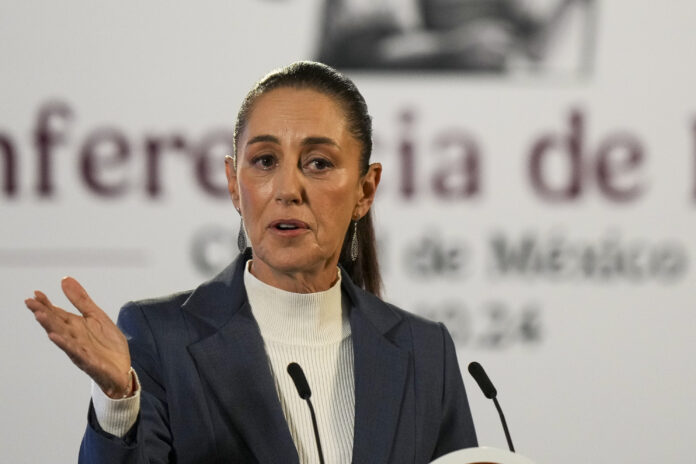President-elect Donald Trump announced on Wednesday that Mexican President Claudia Sheinbaum had agreed to halt migration through Mexico to the U.S. southern border, hailing the phone call as a major diplomatic victory.
However, Sheinbaum later clarified that Mexico has no plans to close its borders, emphasizing a more nuanced approach to migration.
Trump’s Bold Statements
In a series of posts on his Truth Social platform, Trump described his conversation with Sheinbaum as “wonderful” and claimed she had committed to stopping migration into the U.S.
“She agreed to stop Migration through Mexico, and into the United States, effectively closing our Southern Border,” Trump wrote, adding that the move would “go a long way toward stopping the illegal invasion of the USA.”
Trump also noted the two leaders discussed ways to combat drug trafficking, which he recently accused Mexico of enabling. As part of his broader strategy, Trump has proposed imposing a 25% tariff on Mexican imports to pressure the country into stricter border control measures.
Sheinbaum’s Clarification
Shortly after Trump’s announcement, Sheinbaum took to X (formerly Twitter) to share her perspective on the call. She described the conversation as “excellent” and reiterated Mexico’s commitment to addressing migration within its borders.
Sheinbaum explained that “no caravans are arriving at the [U.S. southern] border because they are being attended to in Mexico,” referencing her country’s comprehensive migration strategy. However, she firmly rejected the notion of closing borders, emphasizing Mexico’s approach to building “bridges between governments and between peoples.”
A Diplomatic Tightrope
The exchange highlights the complex dynamics between the U.S. and Mexico on migration and border security. While Trump framed the call as a diplomatic coup, Sheinbaum’s statements suggest a more cooperative and rights-focused approach from Mexico.
As Trump prepares to take office, his administration’s handling of border security and its relationship with Mexico will remain a critical focal point in U.S. domestic and foreign policy. Whether the two leaders can align on strategies remains to be seen.


